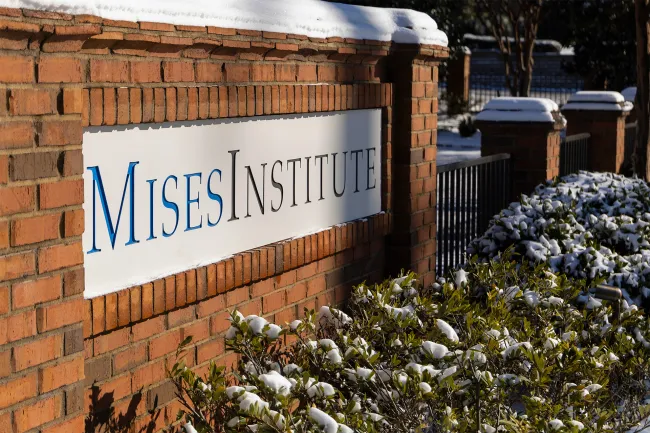

Skin Tone Products, Markets, and “White Privilege”

Economic Illiteracy Handicaps Britain’s New Right Wing Party

Herbert Hoover, Enemy of Free Markets

What Made Europe Different

Do We Need a New English Translation of Marx’s Capital?

Libertarian Literary and Media Criticism

Free Trade in the Twenty-First Century
International trade is the topic du jour. Mark Thornton shares his recent presentation on a timely and important book featuring many of your favorite authors.

4 Lessons We Learned from the Covid Panic of 2020
It's been five years since the covid lockdowns of 2020.

Are Trade Deficits a Sign of Economic Strength?
Bob responds to flawed arguments about trade deficits.

Are Economic Crises and Crashes Inevitable?
Are economic crashes inevitable, or are they the direct result of government meddling? History shows a pattern—but politicians and central bankers refuse to take the blame.
Join Robert Malone, Tom Woods, and Tom DiLorenzo in Phoenix to discuss our enemy, the bureaucracy this April.
This spring, students from across the US are participating in Mises Book Clubs led by scholars at various universities and colleges. These student groups promote deep reading in Austrian economics.
Research Fellowships at the Mises Institute in Auburn, Alabama, are available to graduate students and post-docs interested in scientific research in the Austrian school and libertarian political economy.
Join us in Auburn for the Revisionist History of War Conference in May.












